THE HUMANITARIAN RESPONSE PLAN AT A GLANCE
Population matters
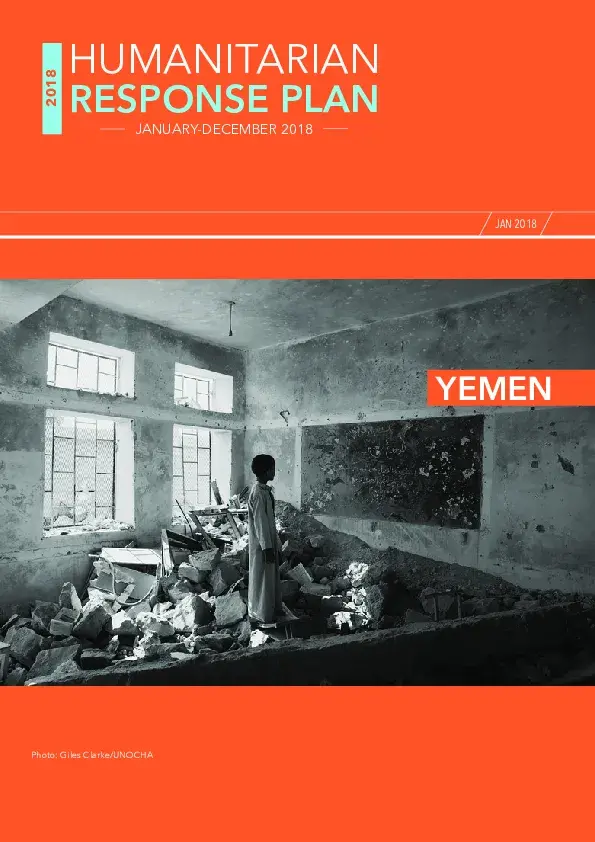
Publisher
Number of pages
68
Author
OCHA
Publication
2018 Yemen Humanitarian Response Plan (YHRP)
Publication date
24 January 2018
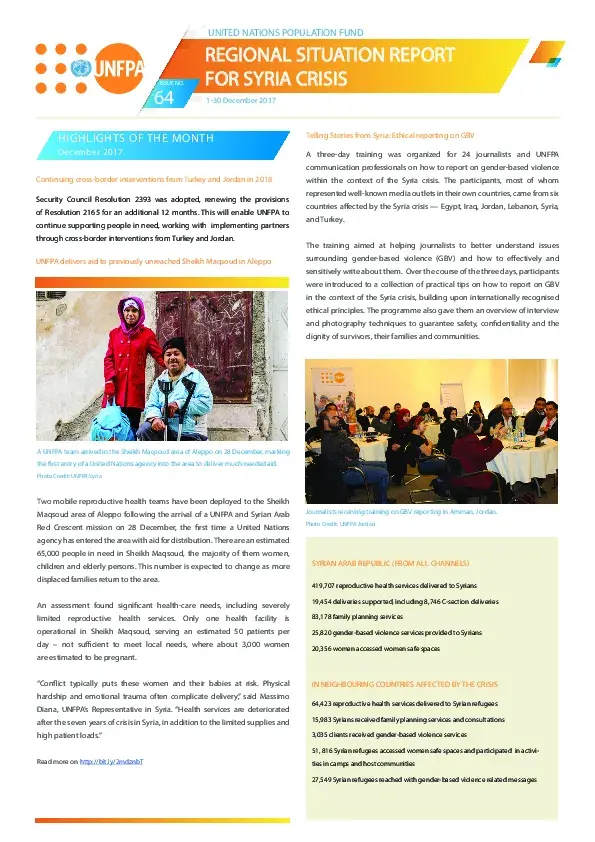
Publisher
Number of pages
8
Author
UNFPA
Publication
Regional Situation Report for Syria Crisis, Issue #64
Publication date
20 January 2018
Highlights
SYRIAN ARAB REPUBLIC (FROM ALL CHANNELS)
419,707 reproductive health services delivered to Syrians
19,454 deliveries supported, including 8,746 C-section deliveries
83,178 family planning services
25,820 gender-based violence services provided to Syrians
20,356 women accessed women safe spaces
IN NEIGHBOURING COUNTRIES AFFECTED BY THE CRISIS
64,423 reproductive health services delivered to Syrian refugees
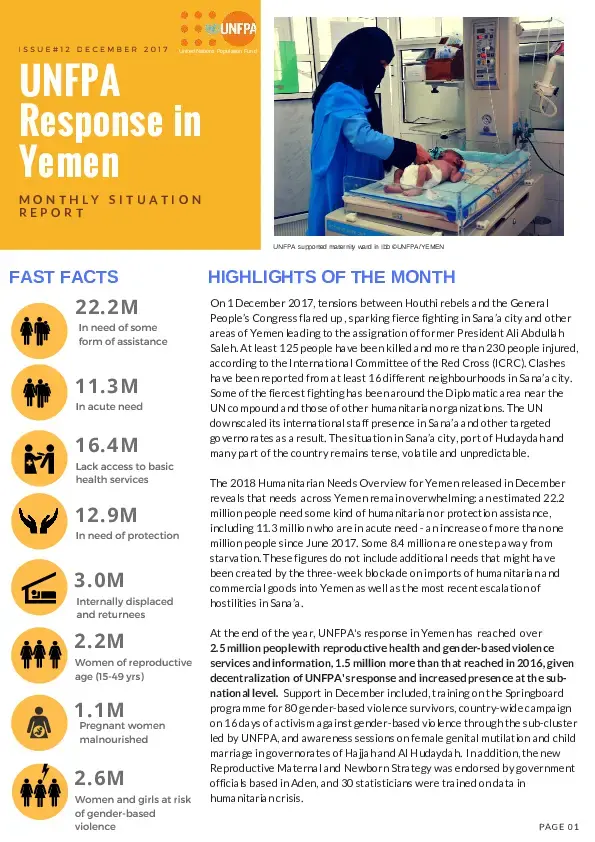
Publisher
Number of pages
2
Author
UNFPA
Publication
UNFPA Response in Yemen #Issue 12 - December 2017
Publication date
19 January 2018
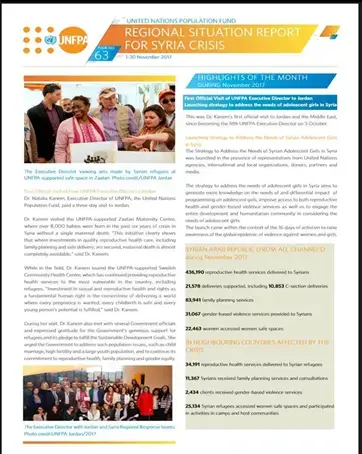
Publisher
Number of pages
9
Author
UNFPA
Publication
UNFPA Regional Situation Report for Syria #63
Publication date
09 January 2018
SYRIAN ARAB REPUBLIC (FROM ALL CHANNELS) during November 2017
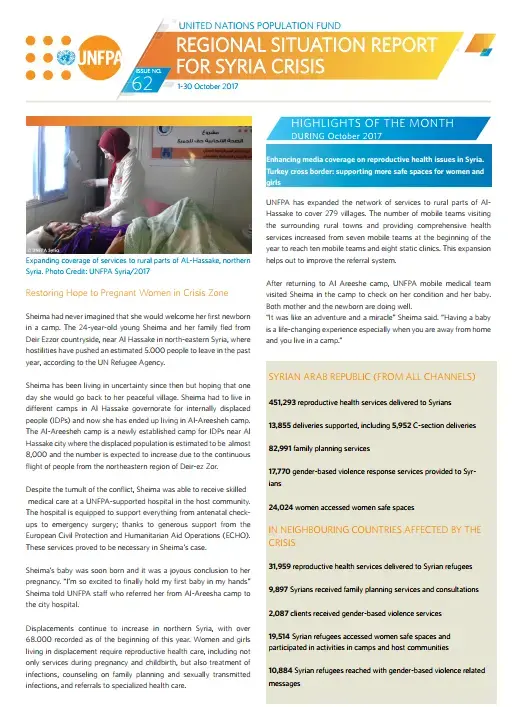
Publisher
Number of pages
7
Author
UNFPA
Publication
REGIONAL SITUATION REPORT FOR SYRIA CRISIS #62 (1-30 October 2017)
Publication date
22 November 2017
UNFPA has expanded the network of services to rural parts of AlHassake to cover 279 villages. The number of mobile teams visiting the surrounding rural towns and providing comprehensive health services increased from seven mobile teams at the beginning of the year to reach ten mobile teams and eight static clinics. This expansion helps out to improve the referral system.
Publisher
Number of pages
2
Author
UNFPA
Publication
UNFPA Monthly Situation Report for Yemen #11 - November 2017
Publication date
20 December 2017
Highlights of the Month:
Video
Commit to ending gender-based violence by 2030
Gender-based violence, along with harmful practices, such as child marriage and female genital mutilation, are human rights violations that rob women and girls of their futures and undermine their health and well-being.
News
Commit to ending gender-based violence by 2030
24 November 2017
Publisher
Number of pages
2
Author
UNFPA
Publication
UNFPA Monthly Situation Report for Yemen #10
Publication date
21 November 2017
Yemen is now the world’s largest humanitarian crisis, including the fastest growing cholera epidemic ever recorded, and the world’s largest food emergency.
Some 20 million people require humanitarian assistance, seven million of whom are severely food insecure, staving off the threat of famine. Despite challenging conditions and lack of funding, UN and humanitarian parties are providing direct assistance to more than 7 million people each month.
Video
Yemen's Blockade Crisis
Yemen has historically been 80 to 90 per cent dependent on imported food, medicines and fuel. All ports, including Al Hudaydah, Saleef and Aden, are necessary to meeting Yemen’s needs.

